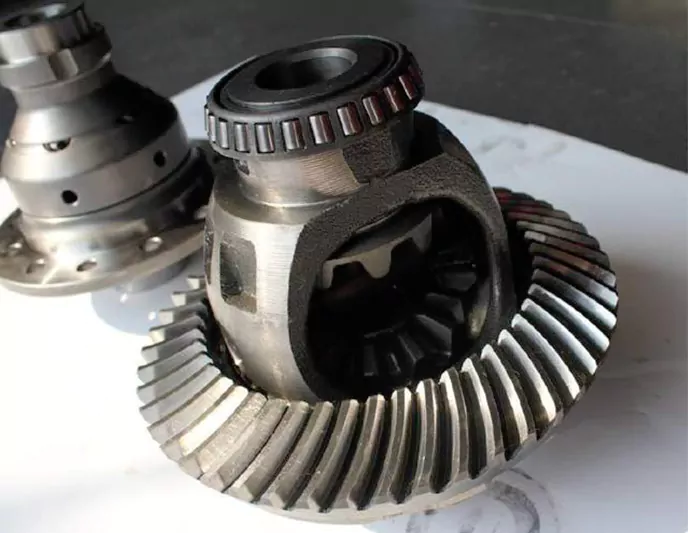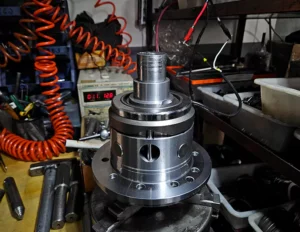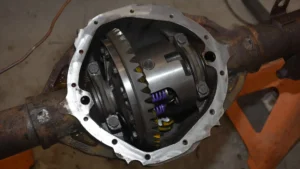
What is a Limited Slip Differential?
A Limited Slip Differential is designed to overcome the shortcomings of an open differential. In an open differential, power is sent to the wheel with the least resistance, which can lead to wheel spin, particularly in low-traction situations. In contrast, an LSD ensures that torque is distributed more evenly between the wheels, improving traction and vehicle stability.
How Does an LSD Work?
The core function of an LSD is to optimize torque distribution. When a vehicle turns or encounters slippery conditions, one wheel may begin to slip. In response, the LSD redirects more torque to the wheel with better traction. This is achieved through its advanced internal gear structure.
- Internal Gear Assembly: Most LSDs incorporate a series of gears, such as helical gears, that work together to monitor and adjust torque in real time.
- Torque Sensing Mechanism: The LSD detects differences in wheel speed. When it senses a slip, the gear system intervenes, locking a portion of the differential to ensure balanced torque delivery.
- Torsen Technology: Many high-performance LSDs, including Torsen differentials, use a set of 12 helical gears. These gears provide smooth, continuous torque transfer for improved performance in various driving conditions.
Benefits of Optimized Torque Distribution
Understanding the working principle of a Limited Slip Differential reveals several benefits:
- Enhanced Traction: By delivering more torque to the wheel with better grip, LSDs significantly reduce wheel spin, especially on uneven or slippery surfaces.
- Improved Vehicle Stability: During turns and rapid acceleration, a well-designed LSD maintains vehicle balance, reducing the risk of oversteer or understeer.
- Versatile Performance: Whether for everyday driving, high-performance racing, or off-road adventures, LSDs adapt to changing conditions, ensuring consistent performance.
- Competitive Advantage for Businesses: For automotive repair shops, dealerships, and aftermarket part suppliers, offering vehicles equipped with advanced LSDs translates to enhanced customer satisfaction and market differentiation.
Internal Gear Structure of LSD
The efficiency of an LSD largely depends on its internal gear structure. This structure is the heart of the differential, managing the split-second decision-making required to allocate torque optimally. Here’s how it works:
- Responsive Adjustment: The gear system in an LSD reacts immediately to differences in wheel speed. When one wheel loses traction, the gears adjust to distribute power more effectively.
- Precision Engineering: Components like the 12 helical gears in a Torsen LSD ensure that torque distribution is smooth and continuous, avoiding sudden changes that could compromise vehicle handling.
- Durability and Reliability: High-quality gear structures not only improve performance but also enhance the durability of the differential, ensuring that it withstands the rigors of various driving conditions.
Applications and Business Value
For B2B clients such as dealers and repair shops, understanding the working principle of LSDs is crucial. Limited Slip Differentials are not just an automotive accessory—they are a core component that can significantly influence vehicle performance and customer satisfaction.
- Automotive Repair: Knowledge of LSD technology helps repair shops diagnose issues more accurately and offer tailored solutions.
- Car Modification: For performance tuning and aftermarket enhancements, LSDs are essential for drivers seeking better handling and traction.
- Dealerships and Distributors: Stocking vehicles with advanced LSDs can set your offerings apart, appealing to a market that values performance, safety, and reliability.



